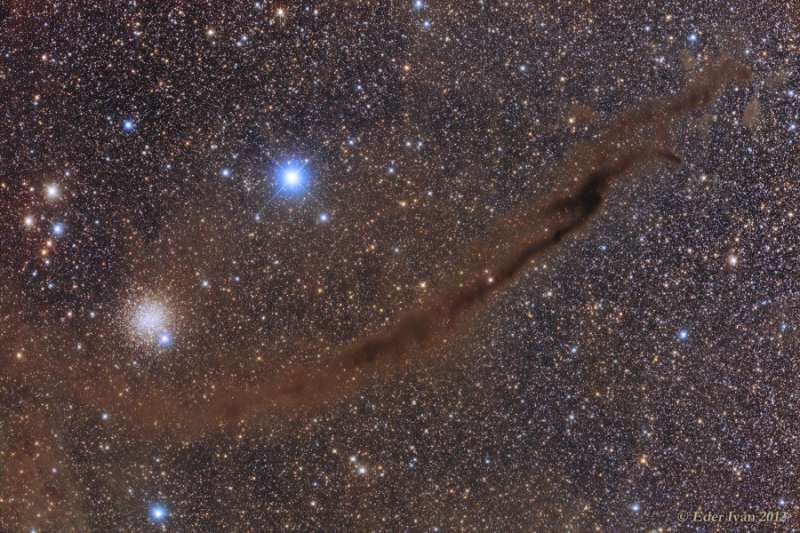
|
Credit & Copyright: Ivan Eder
Explanation:
The delightful Dark Doodad Nebula drifts
through southern skies,
a tantalizing target for binoculars in the constellation
Musca, The Fly.
The dusty cosmic cloud
is seen against rich starfields just south of the
prominent
Coalsack Nebula and the Southern Cross.
Stretching for about 3 degrees
across
this scene the Dark Doodad
seems punctuated at its southern tip (lower left) by
globular star cluster
NGC 4372.
Of course NGC 4372 roams the halo of our Milky Way Galaxy,
a background object some 20,000 light-years away and only
by chance along our line-of-sight to the Dark Doodad.
The Dark Doodad's well defined silhouette belongs to the
Musca molecular cloud,
but its better known alliterative moniker was first
coined by astro-imager and writer
Dennis di Cicco in 1986 while
observing comet Halley from the Australian outback.
The Dark Doodad is around 700 light-years distant
and over 30 light-years long.
|
January February March April May June July August September October November December |
| ||||||||||||||||||||||||||||||||||||||||||||||||
NASA Web Site Statements, Warnings, and Disclaimers
NASA Official: Jay Norris. Specific rights apply.
A service of: LHEA at NASA / GSFC
& Michigan Tech. U.
Based on Astronomy Picture
Of the Day
Publications with keywords: globular cluster - dark nebula - molecular cloud
Publications with words: globular cluster - dark nebula - molecular cloud
See also:
